Archive
16 May 2020
Expression of Concern about Quantized Majorana conductance publication
On April 29, Nature published the following statement regarding the 2018 article titled Quantized Majorana conductance: “The authors have alerted the editors of Nature to potential problems in the manner in which the raw data in this Letter have been processed, and these will have an impact on the conclusions that can be reliably drawn.”
14 May 2020
How copper can damage a cell
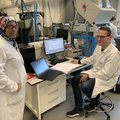
Copper is important for many processes in our body. Among other things, it supports the production of red blood cells, metabolism, and the formation of connective tissue and bones. Copper is also known to play a role in diseases such as cancer, diabetes and Alzheimer's disease. Unfortunately, we do not yet know exactly what that role entails. Researchers from Delft University of Technology and the Polish Academy of Sciences have now discovered a new piece of the puzzle. In order to be able to do its work, copper binds to different types of proteins in the cell. And although the complexes that are formed in this process are not harmful in themselves, temporary 'intermediate forms' appear to arise during the binding, which can lead to damage to the cell. The results of the research have been published in Angewandte Chemie.
13 May 2020
Making yeast dizzy to learn more about our own traits
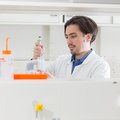
What can yeast teach us about ourselves? Quite a lot, says Werner Daalman, a PhD-candidate in the group of Liedewij Laan who is defending his thesis on Wednesday 13 May. Daalman has studied how baker’s yeast decides in which direction to grow. It turns out that random differences in the quantity of the proteins involved in cell growth play a key role in this process. Such random variations in protein quantity are likely to be an important factor in other cellular processes as well. Not only in yeast, but also in human cells.
07 May 2020
TU Delft leads new European project on membrane-less redox flow batteries
The EU recently awarded €4Million to the MELODY consortium, to develop low cost, innovative batteries for large-scale energy storage, as part of the Horizon 2020 program ‘Advanced Redox Flow Batteries for stationary energy storage’. The MELODY consortium consists of small & medium enterprises (Elestor, PV3 Technologies, Vertech), industry (Shell) and academic leaders (TU Delft, Technion, University of Exeter, ETH Zurich), with coordination support provided by Hezelburcht. The collaborative project began in January 2020, and will run for 4 years, leading to a pilot facility that demonstrates the practical application, with each partner bringing required know-how and capabilities to complete the project.
30 April 2020
Investment of 14 million for better use of micro-organisms
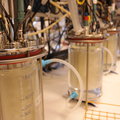
27 April 2020
TU Delft researchers gain new insights into Vermeer’s Girl with a Pearl Earring

Scientific research into the world-famous painting by Johannes Vermeer, known as the 'Girl with a Pearl Earring', has yielded new insights. TU Delft researchers played an important role in making discoveries about the brushwork, the use of pigments and how Vermeer built up his painting with various layers of paint.
23 April 2020
Andreas Wallucks selected as Schmidt Science Fellow

Schmidt Futures has selected Andreas Wallucks of the Simon Groeblacher Lab (Quantum Nanoscience) as one of their 22 early-career interdisciplinary Fellows. Wallucks will receive a a $100,000 stipend that allows him to change topics as a postdoc. He will join a community of fellows and will be paired with an internationally accomplished and experienced senior scientist as a mentor.
20 April 2020
Microorganisms work together to survive high temperatures
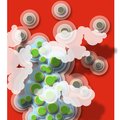
Delft researchers demonstrate that microorganisms can work together and help each other and their future generations survive and replicate at high temperatures.
17 April 2020
European Commission greenlights large international water project

The European Commission has signed the grant agreement for WATER MINING, a 17 million euro project aimed at demonstrating innovative water resource solutions. As part of the project, demonstrations in Cyprus, Spain, Portugal, Italy and The Netherlands will be built to show novel efficient ways to reclaim nutrients, minerals, energy and water from industrial and urban wastewater and seawater. The public-private consortium consists of 38 public and private partners and 4 linked third parties in 12 countries. It will be led by Delft University of Technology (TU Delft).
17 April 2020
Bertus Beaumont: "I believe in the power of a more personal approach to education"
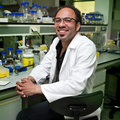
"I memorize all the names of my students and speak to them during the lecture. Yes, even the names of the eighty students who take my bachelor's course!" laughs Bertus Beaumont. He specialises in evolutionary biology and teaches three subjects on behalf of BN/Bionanoscience. "I am committed to renewing education with a personal and multidisciplinary approach." This interview is part of a series of articles on innovation in education and was conducted before the start of the corona crisis.